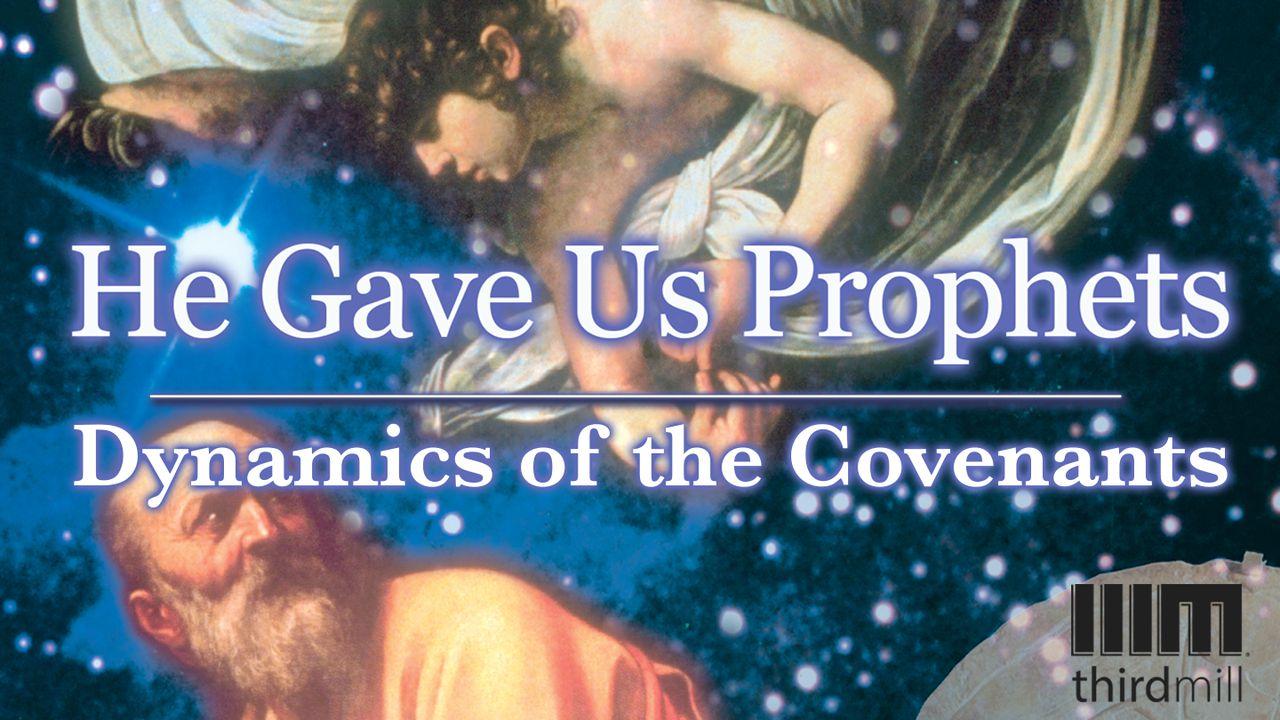He Gave Us Prophets: Dynamics Of The CovenantsSample

Process of Blessing: Joel 3:9-21
All too often, modern Christians have the false impression that in the Old Testament people earned their salvation or earned their righteousness before God. But nothing could be further from the truth. The prophets did not offer men and women the way of salvation through works. They called on people to repent and to seek the mercy of God. In Hosea 14:1-2, we read these words:
Return, O Israel, to the Lord your God. Your sins have been your downfall! … Say to him, “Forgive all our sins and receive us graciously, that we may offer the fruit of our lips.”
The second principle that governs covenant blessings is that they come in varying degrees. Just as judgments came in degrees, so we may speak of lesser and greater blessings. On the lower end of the scale, Old Testament prophets spoke of relatively small mercies from God. For example, just as Isaiah told Hezekiah he was going to become ill and die, he also announced a small blessing to the king when he told him that God would let him live. In Isaiah 38:5, God said:
Go tell Hezekiah, “This is what the Lord, the God of your father David, says: I have heard your prayers and seen your tears; I will add fifteen years to your life.”
A good number of prophecies focus on these personal or individual kinds of blessings. But many times, the prophets also turned their attention to the great national blessings that God would bring to His people. For example, in 701 the Assyrians attacked Judah and had come right to the gates of Jerusalem.
As we read Old Testament prophets, we must always be alert to the smaller and to the greater blessings which God announced to His covenant people.
In addition to divine grace and degrees of blessing, a third principle governs covenant blessings — the climax of the remnant’s restoration. Old Testament prophets believed that no matter how great a judgment might come, there would always be a remnant. Now, this remnant could be very large or it could be very small, depending on how the people reacted. But the prophets always said God would keep a remnant safe and would build on that remnant. For instance, Jeremiah said that Jerusalem would be utterly destroyed, but in Jeremiah 5:18, he assures the people that a remnant would survive:
“Even in those days,” declares the Lord, “I will not destroy you completely.”
The survival of a remnant is important, because it was through a remnant that God promised to bring the greatest blessing of all to His people.
In much the same way, after exile, the remnant would also receive a great blessing in warfare. The prophet Joel taught that when the people of God came back, this remnant would experience a great victory and enduring peace. In Joel 3:9, we read these words:
Proclaim this among the nations: Prepare for war! Rouse the warriors! Let all the fighting men draw near and attack.
But then in 3:17, we read of Israel's victory:
Then you will know that I, the Lord your God, dwell in Zion, my holy hill. Jerusalem will be holy; never again will foreigners invade her.
Joel spoke of a great victory in battle that would establish Israel as safe forever.
All Old Testament prophets looked forward to the restoration of the remnant of God's people. God promised that despite the greatest punishment of exile, the remnant would receive the greatest blessing of restoration.
Click here to watch He Gave Us Prophets: Dynamics of the Covenants, lesson four in the series He Gave Us Prophets. thirdmill.org
Scripture
About this Plan

This reading plan explores covenant ideals, judgments and blessings.
More
We would like to thank Third Millennium Ministries for providing this plan. For more information, please visit: http://thirdmill.org/
Related Plans

From Overwhelmed to Anchored: A 5-Day Reset for Spirit-Led Women in Business

Gospel Courage | Share Your Faith | a 3-Day Devotional

Strategy: The Strategic Faith of Caleb in Overcoming the Giants – a 5-Day Devotional by Allma Johnson

Seeds of Justice: Devotions From a Legacy of Faith and Justice

Cornerstone: Rebuild, Renew, Restore

Celebrate

Adventure in Evangelism

What Is the Fear of the Lord?

5 Steps to Standing Strong in Spiritual Warfare (For Women)
